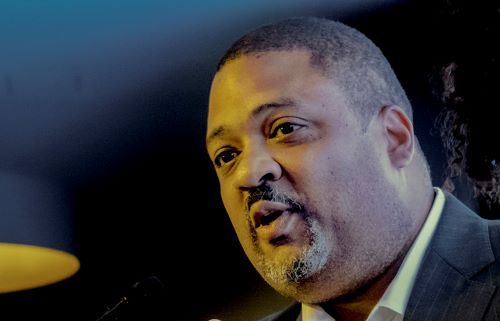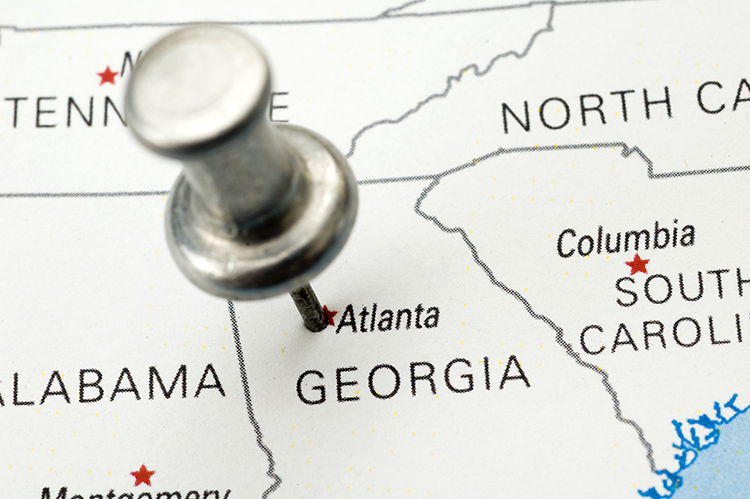Manhattan DA walks back prosecution policies criticized as too lenient

Alvin Bragg speaks to supporters during his campaign for Manhattan district attorney in June 2021. Bragg made clear Friday, Feb. 4, that gunpoint and knifepoint stickups at stores and other commercial places will be prosecuted as felonies, updating a controversial policy memo that he put out days after taking office last month. Photo by Craig Ruttle/The Associated Press.
Manhattan District Attorney Alvin Bragg in New York City on Friday reversed parts of a Jan. 3 memo that directed prosecutors to avoid seeking jail time for some robberies, assaults and gun crimes.
The initial memo, issued a few days after Bragg took office, had told prosecutors that they should seek jail time only for the most serious offenses, the New York Times reports. The document, which implemented his campaign promises, “prompted weeks of pushback from police officers, small business owners and public officials, making Mr. Bragg a political target,” the article reports.
Since then, Bragg has clarified and modified his new policy, completing “the pivot that he started to make shortly after the backlash began,” according to the New York Times.
ABC News, the New York Post and NBC New York also have coverage of the Feb. 4 memo, posted by the New York Post.
The articles outline these revisions:
• Bragg originally said robberies would be charged as felonies only if they created a genuine risk of physical harm. His new policy says commercial robberies involving the use of guns, realistic fake guns and other weapons carrying the risk of physical harm would be charged as felonies. “A commercial robbery with a gun will be charged as a felony, whether or not the gun is operable, loaded or a realistic imitation,” Bragg now says.
• The first memo did not say prosecutors should seek jail time for gun possession. Bragg’s new policy says “the default in gun cases is a felony prosecution.”
• Bragg originally said the crime of resisting arrest, standing alone, would not be prosecuted. His new policy says anyone who harms or tries to harm a police officer will be prosecuted. “Violence against police officers will not be tolerated,” Bragg now says.
Bragg also told prosecutors that they were hired for their experience and judgment, and it would be up to them to determine how to charge individual cases.
Write a letter to the editor, share a story tip or update, or report an error.


